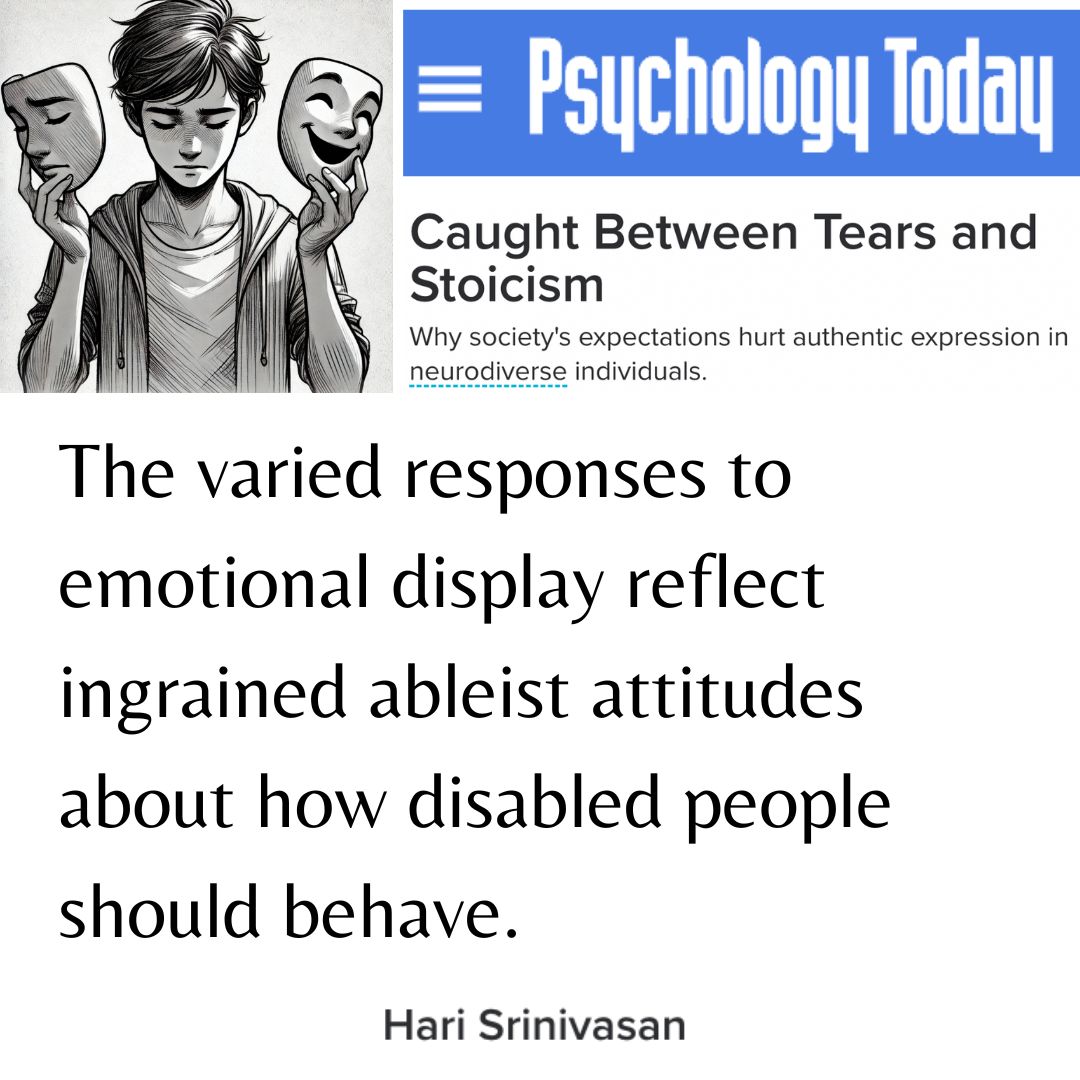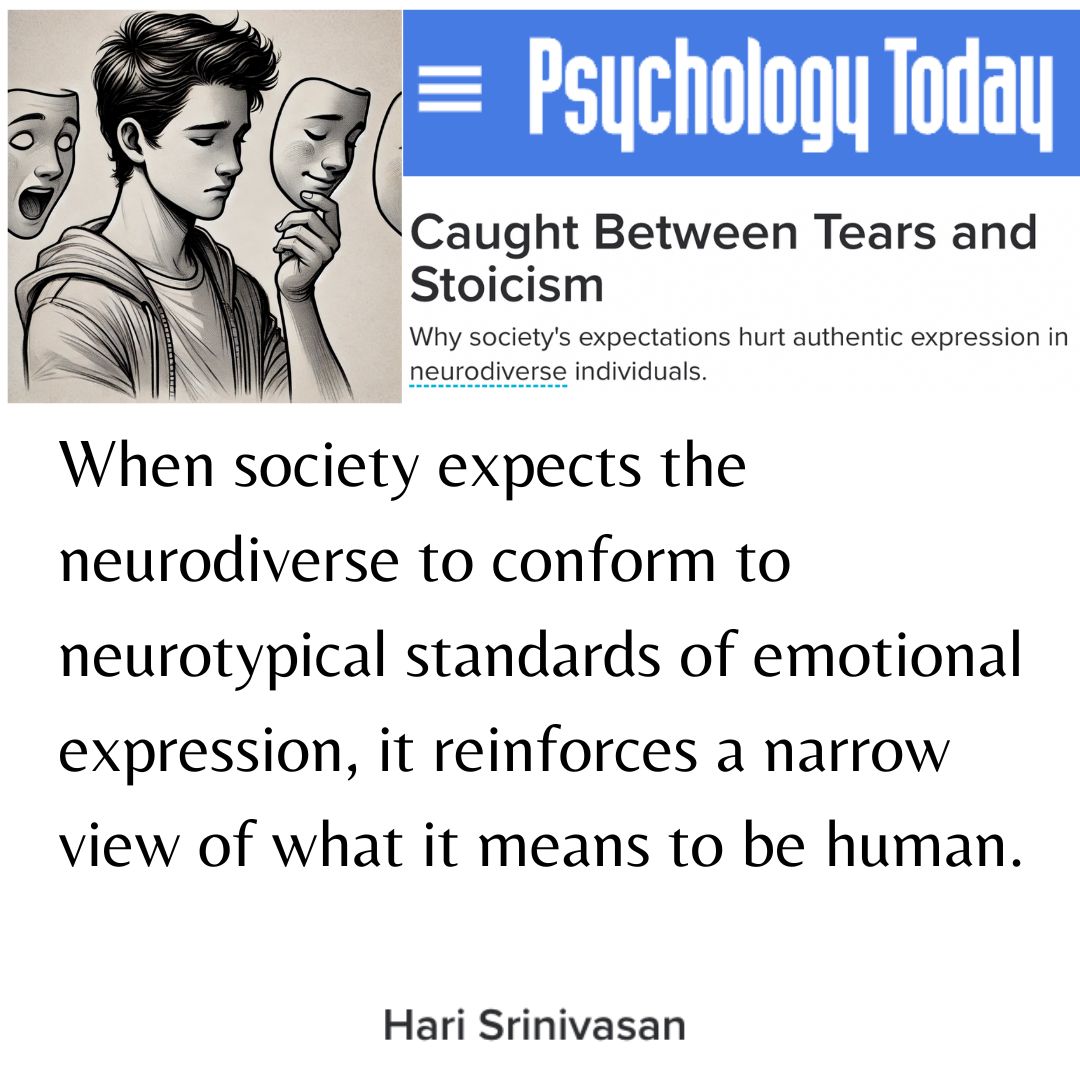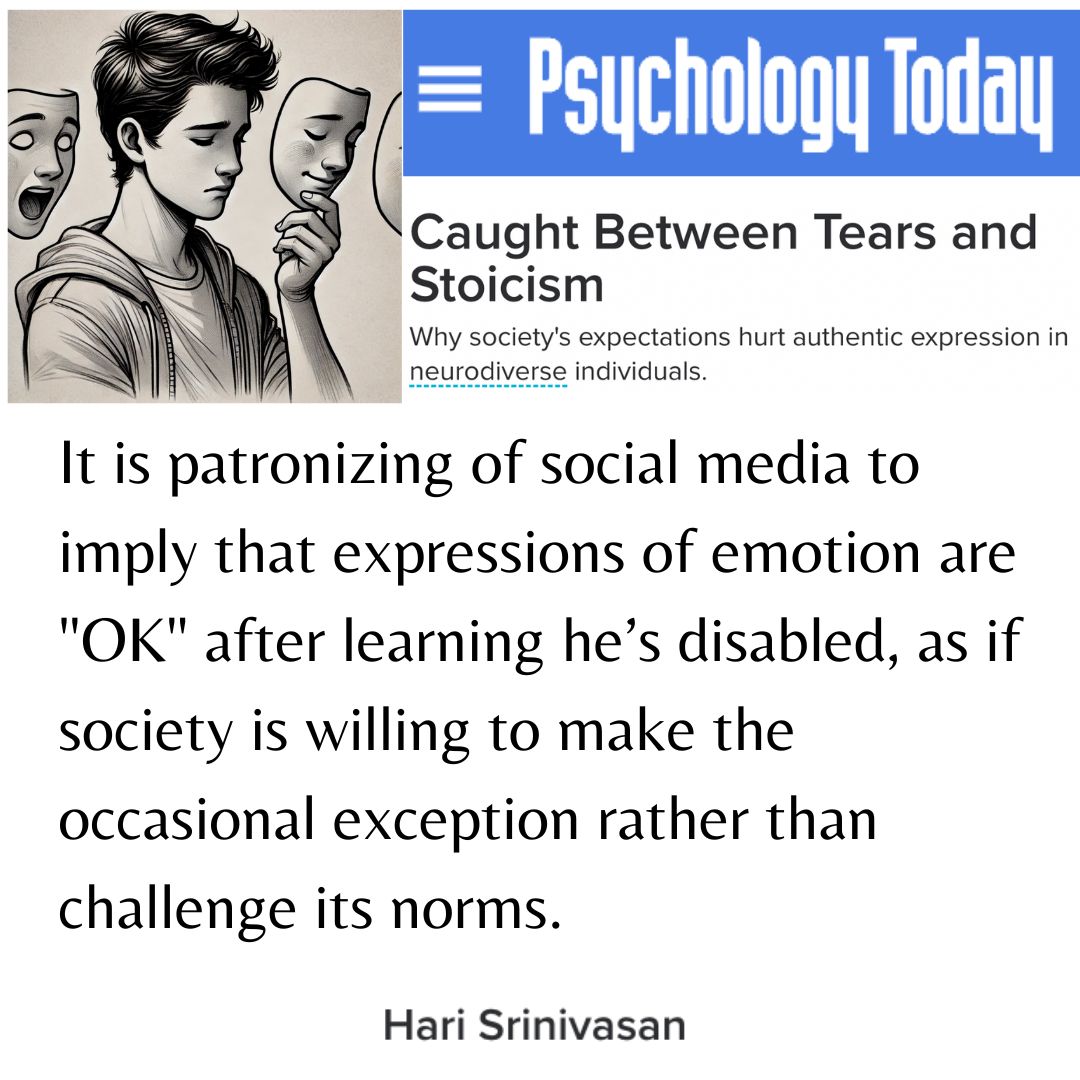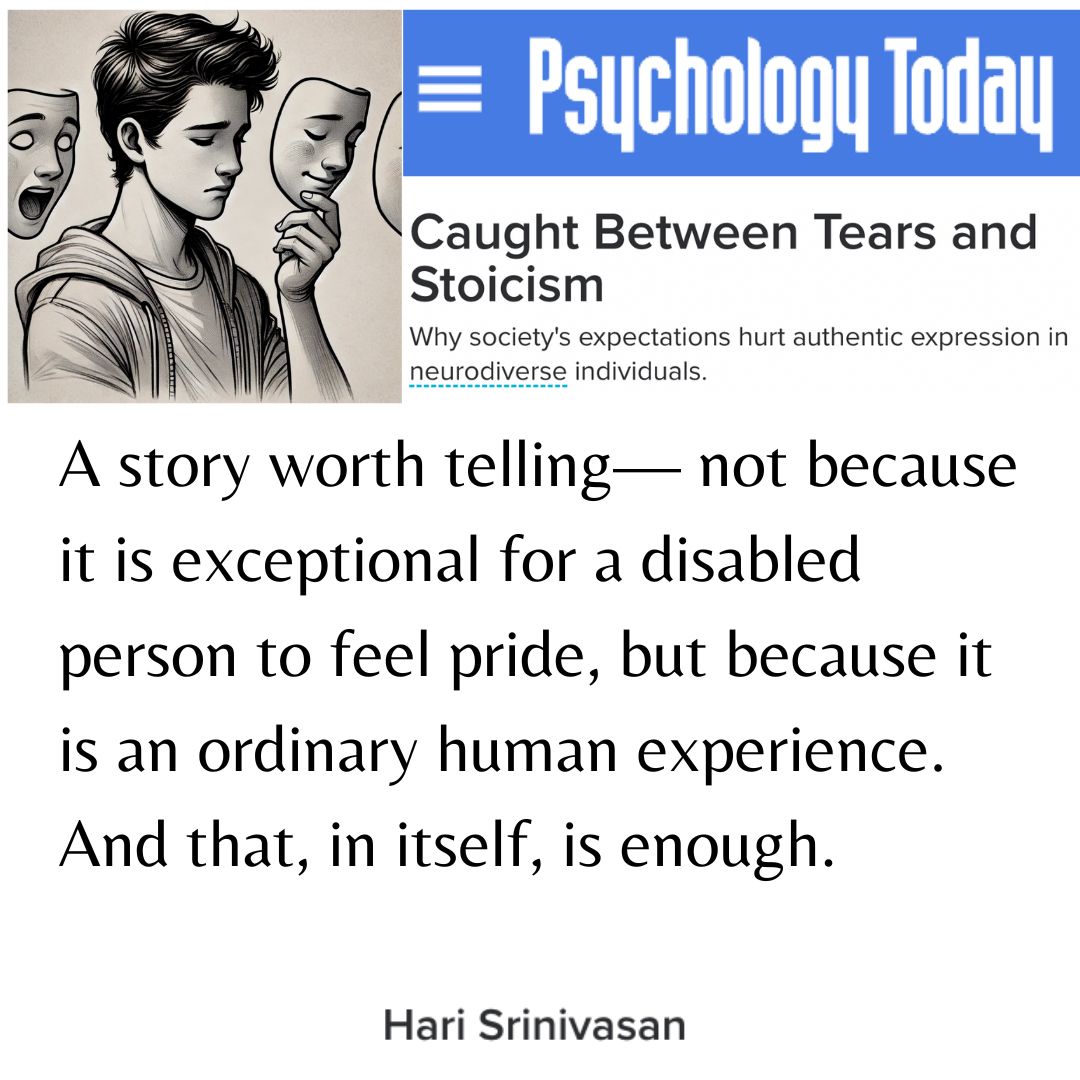Showing posts with label Psychology Today. Show all posts
Showing posts with label Psychology Today. Show all posts
12/3/25
Caught Between Tears and Stoicism
We should have the right to express our emotions without fear of judgment or pity.
Read Full Article at
8/4/25
Caught Between Tears and Stoicism
Autistics are often criticized for being too unexpressive or showing the wrong emotions...But when someone openly shows emotion, it’s suddenly inappropriate. Society can’t have it both ways—criticizing us for showing too little emotion and then too much.
Read Full Article at
7/2/25
Caught Between Tears and Stoicism
Expecting neurodiverse individuals to either suppress or exaggerate emotions to fit societal comfort zones places an unfair burden of emotional labor on them.
Read Full Article at
4/2/25
Caught Between Tears and Stoicism
It’s a catch-22: If we don’t show emotion, we risk being labeled as "cold" or "unexpressive"; if we do, we might be seen as "overly emotional."
Read Full Article at
3/5/25
Caught Between Tears and Stoicism
The varied responses to emotional display reflect ingrained ableist attitudes about how disabled people should behave.
Read Full Article at
2/19/25
Intensified Mourning
Sensory Overload and Communication Challenges intensifies autistic mourning experiences - Hari Srinivasan
2/5/25
Caught Between Tears and Stoicism
When society expects the neurodiverse to conform to neurotypical standards of emotional expression, it reinforces a narrow view of what it means to be human.
Read Full Article at
1/19/25
1/3/25
Caught Between Tears and Stoicism
Objectification — serves only to make neurotypical people feel good rather than truly recognizing the neurodiverse individual’s experience.
Read Full Article at
12/19/24
12/4/24
Caught Between Tears and Stoicism
It is patronizing of social media to imply that expressions of emotion are "OK" after learning he’s disabled, as if society is willing to make the occasional exception rather than challenge its norms.
Read Full Article at
11/19/24
11/6/24
Caught Between Tears and Stoicism
In a world where emotional expression is often suppressed or critiqued, especially in public figures and their families, his response is a refreshing reminder of our shared humanity.
Read Full Article at
Comment:
Hari, this is incredible. It is both beautiful and meaningful in its humanity, as well as being an exceptionally important message for inclusion - how you manage to do those two things at once is something I am extremely inspired by!
10/19/24
10/2/24
Caught Between Tears and Stoicism
A story worth telling— not because it is exceptional for a disabled person to feel pride, but because it is an ordinary human experience. And that, in itself, is enough.
Read Full Article at
=======
Comment
Beautifully written and very wise, Hari! I will also share it with my students.
9/19/24
9/3/24
Caught between tears and stoicism
My latest article in Psychology Today
Disabled individuals face conflicting expectations about emotional expression. Gus Walz's story reveals the bias and challenges around being authentic.
Read full article at:
https://www.psychologytoday.com/us/blog/giving-voice/202409/caught-between-tears-and-stoicism
=====
Comments
The best piece I've read on the national convo about Gus Walz. Hari Srinivasan's perspective and insights, as a neurodiverse individual, bring a new level of depth into the dialogue
------
Hari Srinivasan, a member of the Autism Society's Council of Autistic Advisors, discusses the public reaction to Gus Walz at the Democratic National Convention, exploring the implications of reactions and the way in which the public criticizes people with disabilities both for showing too much or too little emotion. He reminds us that emotional expression is a human experience, not defined by disability. ---------------
Another powerful piece by Hari Srinivasan, with important reflections that serve as a call to action.
For me, it's a reminder that listening to and trusting the experiences of Autistic people is at the heart of Autism Acceptance - and that acceptance and disability justice are at the heart of health, welllness and so many of the issues in our schools, homes, workplaces, and communities.
For me, it's a reminder that listening to and trusting the experiences of Autistic people is at the heart of Autism Acceptance - and that acceptance and disability justice are at the heart of health, welllness and so many of the issues in our schools, homes, workplaces, and communities.
------------
I’m so happy you wrote this piece. “What we should celebrate isn’t that Gus is neurodiverse and shows emotion, but that he is a teenager, proud of his father, and unafraid to express it. In a world where emotional expression is often suppressed or critiqued, especially in public figures and their families, his response is a refreshing reminder of our shared humanity.” Amen!-----
Your article on Psychology today is fantastic and I as a dad of a 10 y.o kids with autism and ADHD realized about how sometimes I have asked my son "calm" down when he get overly emotional. I went through a lot of emotions while I was reading your article including guilt, shame and finally relief. It has been a constant learning journey and I am trying to be a better parent but your article is like a window into his brain, giving me some deeper insights into how differently he might be built. Please continue writing 8/14/24
7/17/24
Subscribe to:
Comments (Atom)

























